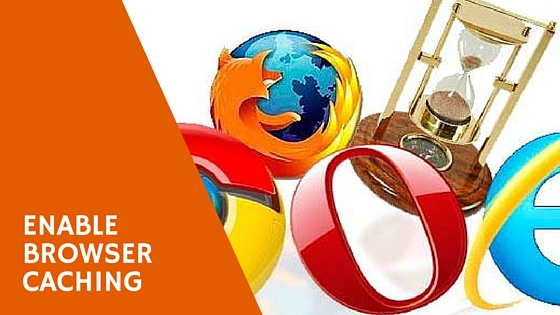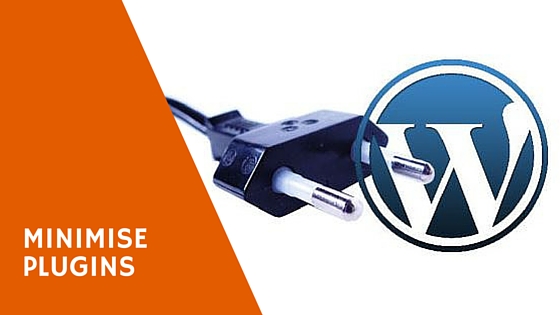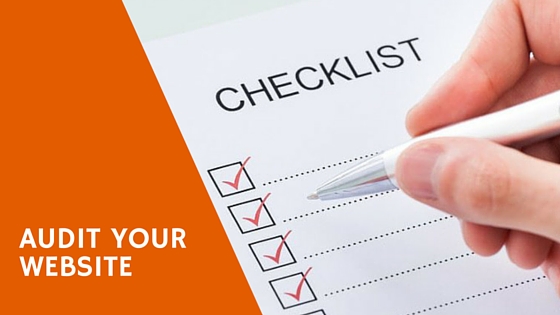Our days are filled to the brink.
No one has time to wait for anything… Especially for a slow loading webpage.
A single second delay can cause a big drop in conversions, a reduction in pages viewed and ultimately a reduction in user satisfaction.
Also not to mention web page load time has been a ranking factor for some time now.
Your organic results will be affected with a slow loading webpage.
So how do we fix the problem?
First let’s understand what is holding your site back.
Web pages are pieces of code that your browser needs to download. Each time someone clicks a link to open a web page, your browser needs to download all of the html code, style sheets, scripts, plug-ins and images.
All of this takes up time.
So it’s the size of all this data that’s the problem.
Reducing the size of all the coding and files that make up a webpage can drastically reduce the page load time.
Let’s learn some easy ways to speed things up.

Optimise Your Images
If your CMS is WordPress then it’s more than likely you have un-optimised images. WordPress out of the box lacks a little in image optimisation.
Performing some manual image optimisation before you upload them into your dashboard is the correct way.
Most people incorrectly upload images in there normally large pixel size and then reduce them to fit using CSS styling.
Images should be manually scaled before uploading them.

Browser Caching
Un-necessarily downloading the same web –page over & over slows down the user experience.
Enabling browser caching allows you to store temporary page files on the user’s desktop.
Doing so means the user will not have to wait for their browser to download the page data each time they visit.
HubSpot go into detail on these two page load factors.
A little attention will go a long way—remember, just a one-second delay is all it takes to lose a lead. – HubSpot

Reduce Overuse Of Plugins
With over 18% of all websites on the WordPress CMS, most websites are more than likely built out with a multitude of plugins.
Although its simplicity is one thing, creating a great looking WordPress website means you’re going to need a lot of plugins to do the job.
Each plugin requires its own coding that takes vital time to load.
If you find you’re continually adding plugins to get a desired outcome, you may be better off uploading a new theme that carries the coding within or possibly hire a developer to code your site.
Jaguarpc considers page load speed an issue with the use of shared hosting. Shared web hosting could result in your website being on the same server as another larger site resulting in less space available.
Jaguarpc recommends looking at your plugins first however most likely you should consider moving across to a Business hosting plan.

Use A Content Delivery Network (CDN)
You page load speed can be improved by using a CDN. This is a system of distributed servers that deliver webpages and other web based content to a user based on their geographic location and the content delivery server.
Maxly explain how the use of CDN services such as CloudFare can cache files from your website on their network of servers to reduce the number of server requests made to you website.
Static files such as images, CSS files, JavaScript files tend to be stored on these servers.

Audit Your Page Load Speed
Getting a snapshot of your page speed is key to knowing what elements to tackle in order to improve load times.
Our team use two page load insight tools to determine a page load speed for our client’s sites and of our own.
To get a quick look we use Pingdom.
Simply enter your URL to analyse the load time.
When we need a more in depth insight our go to tool is Website Auditor from the range of SEO Power suite tools offered by Link-Assistant.Com
The Website Auditor tool can provide insights into 9 factors that make up page speed and recommendations on improving each.
These include:
• Page size
• Server response time
• Too many redirects
• Un-compressed resources
• Un-compressed images
• Un-cached resources
• Un-minified resources
• Render-blocking JavaScript / CSS
• Above – the – fold content prioritisation
Learning what factors you are experiencing with slow page loading allows you to improve them and reap the benefits.
And those benefits…
A better user experience
75% of online shoppers will abandon websites because they had to wait too long. 47% of users expect your webpages to load in under 2 seconds.
An increase in search engine rankings
Google since 2010 has considered page load speeds as a ranking factor.
This can be determined by how a user interacts with your site. If every visitor lands on your site then returns back to the search results, it’s probable the page took too long to load.
Regardless of when you last checked your page load speed, it’s worth looking at what’s required to improve it.
Consistently monitoring this important factor can ensure visitors keep returning to your site, and increase your rankings position.
If you’re interested in learning how your website stacks up against your competition, or perhaps you’re unclear exactly how to audit your web page load time, contact us for a complete website audit.


